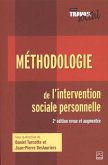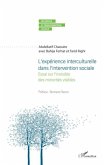Early in the Great Depression, English and French business leaders in Montreal presided over the reorganization and rationalization of Catholic charities in their communities with the blessing, but not the active participation, of the Church. Thus started a decades-long transition from religious charity to public welfare, from largely volunteer work to professional social work, from charity provided by alms to private assistance financed by centralized, large-scale campaigns. Focusing on the Fédération des OEuvres de charité canadiennes-françaises and the Federation of Catholic Charities, Amélie Bourbeau analyzes organizational records, newspapers, government reports, and personal papers to provide new insights into the history of Catholic charities in Montreal. Far from experiencing a linear development, Bourbeau argues, both francophone and anglophone federations were sites of experimentation and innovation, but also conflict - between volunteers and professionals, laypeople and clergy, traditional charity and modern assistance, and sometimes between the communities and the federations themselves - as they evolved towards their current affiliation with state-run social work. From the Great Depression through to the Quiet Revolution, citizenship, the role of the state, and the meanings of religion and language were all subjects of dramatic debate and change in Quebec. By looking closely at the history of social assistance, Techniciens de l'organisation sociale provides a new vantage point from which to understand these transformations.
Dieser Download kann aus rechtlichen Gründen nur mit Rechnungsadresse in A, B, BG, CY, CZ, D, DK, EW, E, FIN, F, GR, HR, H, IRL, I, LT, L, LR, M, NL, PL, P, R, S, SLO, SK ausgeliefert werden.









